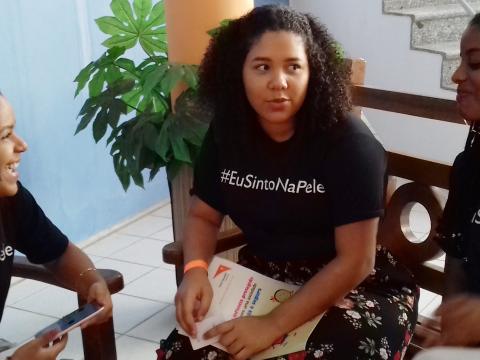Girls, empowerment and identity

By Melissa, aged 17, Young Leader from Brazil
Given that Oct. 11th is International Day of the Girl, I would like to write about the relationship between three things that socially and culturally should go together but many times are not easily found: girls, empowerment and identity. Girls are born with diverse stigmas inherited from the most remote times. Society teaches us, the girls, to put ourselves in a subordinate position. They make us believe that our role in this world is to serve, take care of children and home, and nothing else. And we, from the weak sex that we are not, need to fight not to succumb to so many rules of behaviours. We are taught to hate our bodies and who we are, for not being lean enough, for not having straight hair, for not fitting in. And it is precisely here where beauty is found.
When we do not fit into the world, it means that we were born to help create a new world. I am aware that it is not easy to see the potential we have. The process of acceptance, self-esteem and courage is a long journey. However, when it happens, it is capable of revolutionizing. Empowerment is exactly that. It happens when we know, accept and love who we are and we have the courage to show it to the world. We become empowered girls when we take the wheels of our own life, making us an instrument of struggle and resistance. This occurs when we understand that our existence makes possible the existence of others.
Being empowered is a beautiful process of self-acceptance. But alone, we, girls, cannot make it. It is necessary that the society as a whole takes responsibility for our well-being and demystifies so many rules that trap us. We, girls, must be the front line! We need to be taught from school that we possess a potential capable of changing the world. Because when that happens, girls like Malala Yousafzai are born and they can become great women, like Frida Kahlo, Dandara or María Quitéria.
Reaffirming our identity in a world that tries to convince us that everything we are is bad or ugly is an arduous task, but life has teaches that changes are possible. The changes will be feminine or it will not be.
Melissa, aged 17, Young Leader from Brazil is a member of the MJPOP, which is a movement is a movement that aims to open up spaces for children, young people and youth to engage in social accountability mechanisms and participate in public policy debates. Melissa is working for creating a space for young people from slum communities to dialogue with stakeholders on issues that are relevant to them.